How to Fight a Hotel for Negligence and Win Compensation
There are approximately 91,000 hotels and motels in the U.S. Around 52,000 of these are hotels. Altogether, they earn more than $194 billion in annual revenue. When a customer files a lawsuit against a hotel, it is usually due to negligence. Hotels have certain responsibilities to ensure the health and safety of the guest and their possessions. Yet, each day hotel customers suffer from personal injuries or are victims of losses due to hotel negligence because the hotel failed in their duty to the guest. When that happens, the customer needs to know to pay for medical bills, missing possessions, or other injuries.
Suing a hotel for negligence is not always easy or simple. In order to receive compensation, you must prove that some form of negligence caused your damages. Hotels are often owned by large corporations with teams of lawyers and insurance representatives who are working to minimize or defeat your claim. If you have suffered harm due to a hotel's negligence, DoNotPay can help you send a customized demand letter to request the compensation you deserve.
What Is Negligence?
Basically, a hotel is negligent when it fails to adequately protect its customers and employees. These failures may include:
- Providing clean, sanitary accommodations and fixing any health and sanitation issues promptly.
- Maintaining the hotel in a safe condition and immediately correcting any known hazards.
- Installing safe, functioning door locks and other security measures
- Maintaining the outside and inside areas from weather hazards, such as icy sidewalks or slippery floors
- Hiring and training enough employees to staff the hotel
If a hotel fails in any of these responsibilities, the customer may have grounds for a lawsuit.
Elements of Negligence
There are four key elements necessary for proving negligence. They are:
- Duty of care
- Breach of duty
- Causation
- Damages
Common Examples of Hotel Negligence or Complaints
- The hotel failed to meet health and sanitation standards when cleaning rooms and bathrooms.
- The hotel failed to sanitize sheets, blankets, and pillows.
- Customers encountered bedbugs or other pests.
- Excessive noise.
- The door locks were inadequate, or the hotel did not have proper security measures in place.
- The hotel failed to secure keys or supplies.
- The parking lot was poorly lit or unsafe.
- There were hazardous conditions in the lobby, hallways, or rooms. The hotel failed to fix or warn customers of hazards.
How to Contact a Hotel About Complaints
Hotels and other travel accommodations range from small, independent businesses to huge, multinational corporations. For example, Motel 6 is a privately owned hotel chain. However, Hyatt or Choice Hotels Corporation is a multinational business. Either way, it can be difficult to bring your complaint of negligence to the attention of the person in charge. There are a variety of possible customer service contact options, such as:
- Call or email the customer care provider indicated on the hotel's website
- Complete a customer service form
- Call, email, or send a complaint letter to the corporate entity that owns the hotel
- Contact the hotel on social media, such as Facebook, Twitter, or Instagram
What to Do After an Incident at a Hotel
If you have been injured or suffered a loss at a hotel, it is important to follow certain steps. These include:
| Seeking medical attention. | Even if you think your injuries are minor, many severe injuries do not become apparent right away. Also, medical records of your treatment can provide valuable evidence in the event of a lawsuit. |
| Immediately reporting the injury or loss to the hotel staff. | They should have an established procedure for such an incident. Typically, they write a report indicating what happened. If so, be sure to get a copy. Keep a record of the date, time, hazardous conditions, and what staff you spoke with. |
| Taking pictures and videos of the accident scene and your injuries. | Also, note any video cameras that may have recorded the incident and obtain the footage as soon as possible. Many businesses erase or tape over these recordings on a regular basis. |
Why Is It Hard to Fight a Hotel for Negligence on Your Own
The process of is not always straightforward. You need to understand terms and procedures and file the proper paperwork by certain deadlines. Generally, it is lengthy, exhausting, and there is no guarantee of winning. Different court systems have different courts, jurisdictions, and procedural rules. For example, each state has statutes of limitations for various types of cases. Depending on the facts of your case, you may need to obtain testimony from expert witnesses, such as medical experts.
Be aware that the other side will probably fight back aggressively. Hotels are often reluctant to even offer refunds, and certainly not pay significant claims. They may contest the facts of what happened, how it happened, when it happened, the extent of your injuries, and the responsibility of the hotel.
If the case does not settle, the case usually goes to trial. The process may take a year or two, or even more. The whole messy business can be extremely frustrating, but help is available through DoNotPay.
How to Fight a Hotel for Negligence With DoNotPay
Many negligence claims are filed in a small claims court. Therefore, the value of the damage claim would usually be between about $5,000 and $10,000, depending on where the claim is filed. Start by filing a claim with DoNotPay 5 easy steps:
- Go to the Hotel Bill Complaints & Refunds product on DoNotPay.
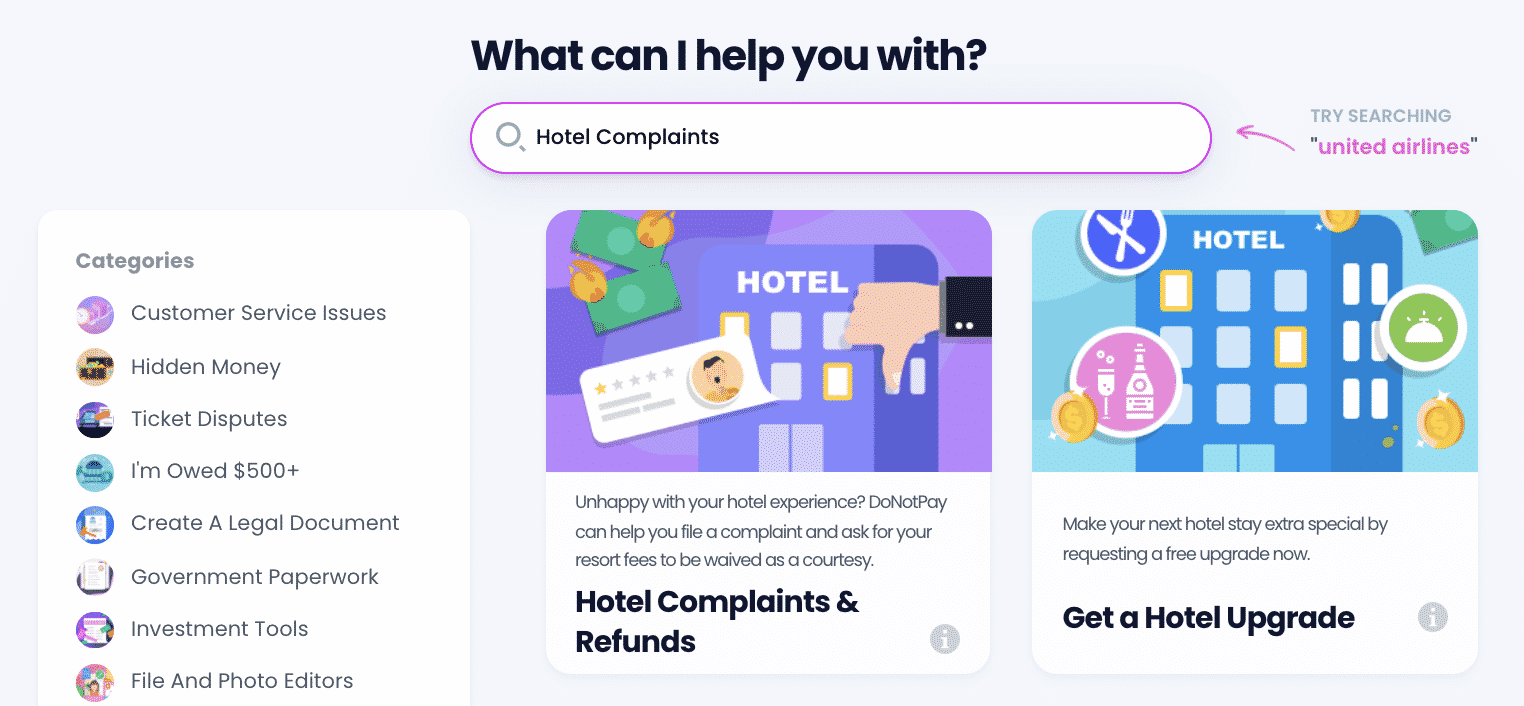
- Tell us the details of your experience and complaint, including how it negatively impacted your stay, and provide photographic evidence if available.
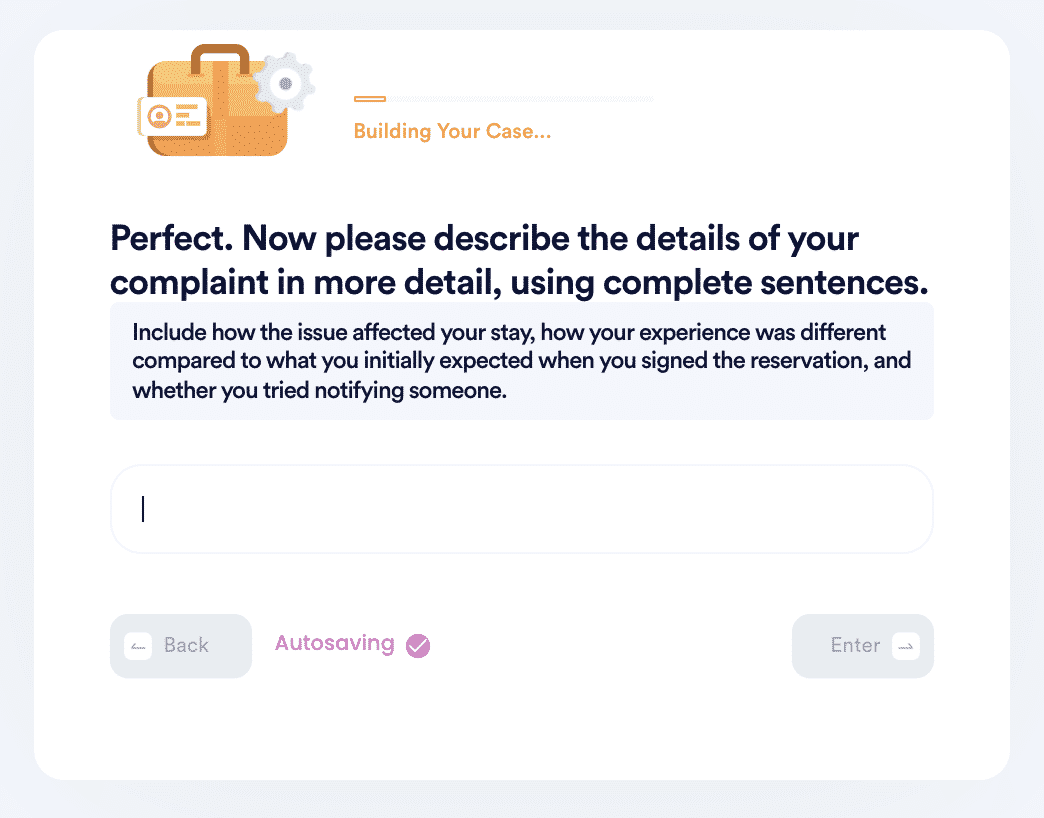
- Enter the details of your reservation, including the check-in/check-out dates and hotel room number.
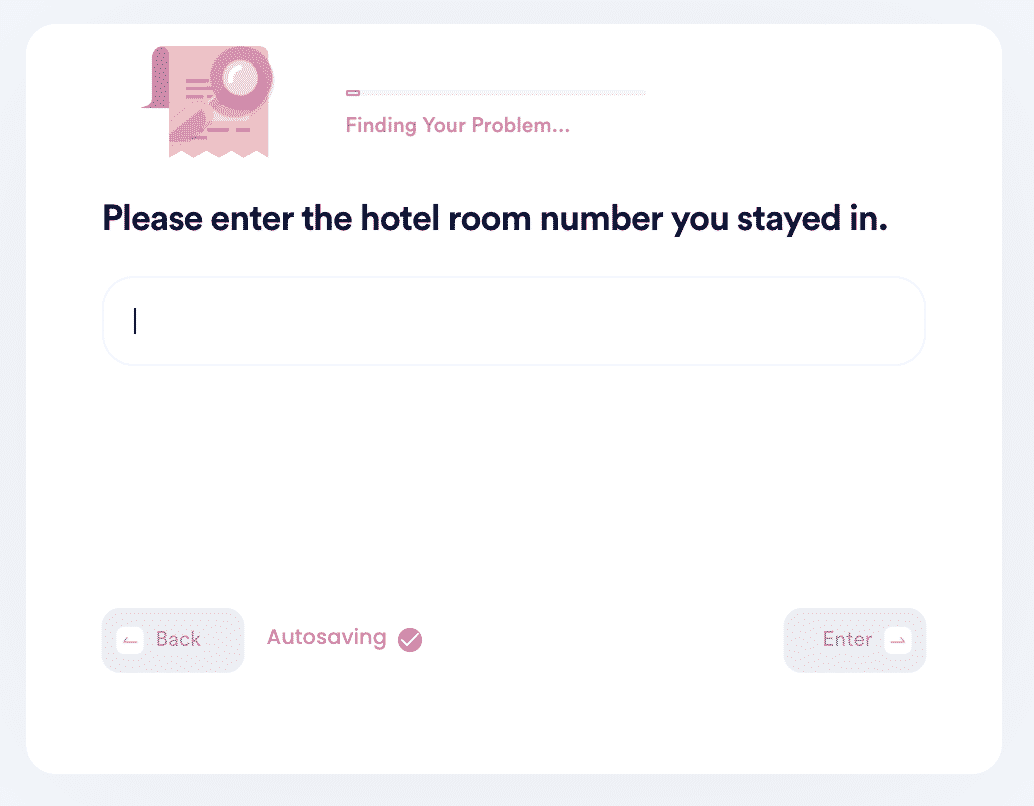
- Tell us whether this is for a past reservation or you're still at the hotel (this helps us decide whether negotiation or chargeback is a better option for your case).
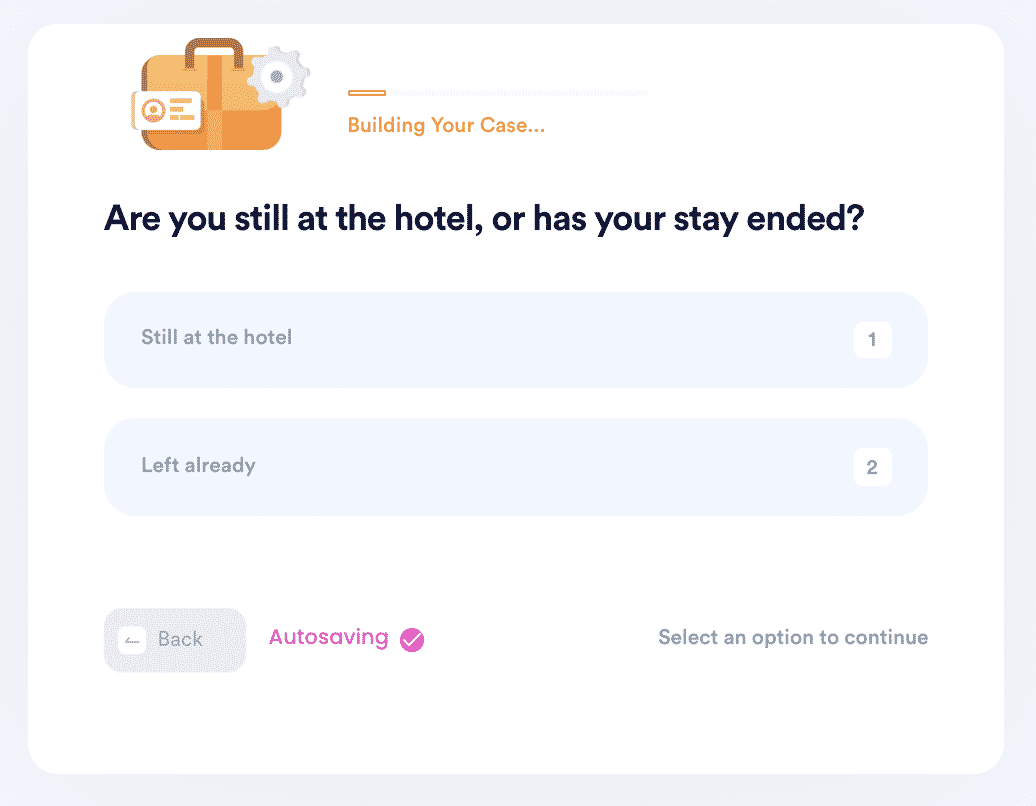
- Choose whether you want us to contact the front desk or general manager (if you've already tried contacting the front desk already).
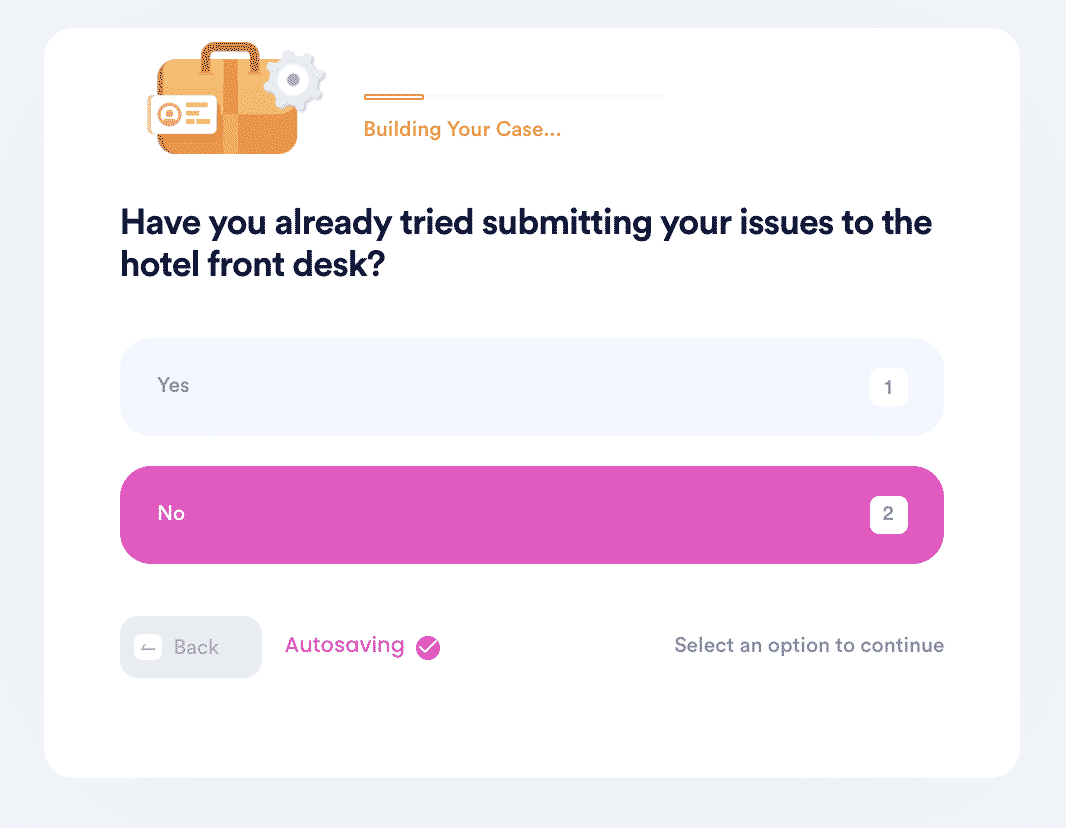
Sending a demand letter to a hotel is the fastest way to demand compensation. DoNotPay's software makes this process easy for you—a customized letter will be generated for you and sent on your behalf.
DoNotPay Works to Solve All Kinds of Issues
DoNotPay can help with hotel negligence lawsuits in all types of hotels, such as Sheraton or Hilton. It also handles other issues, such as problems with your neighbors, airline flight compensation, and customer service.
 By
By